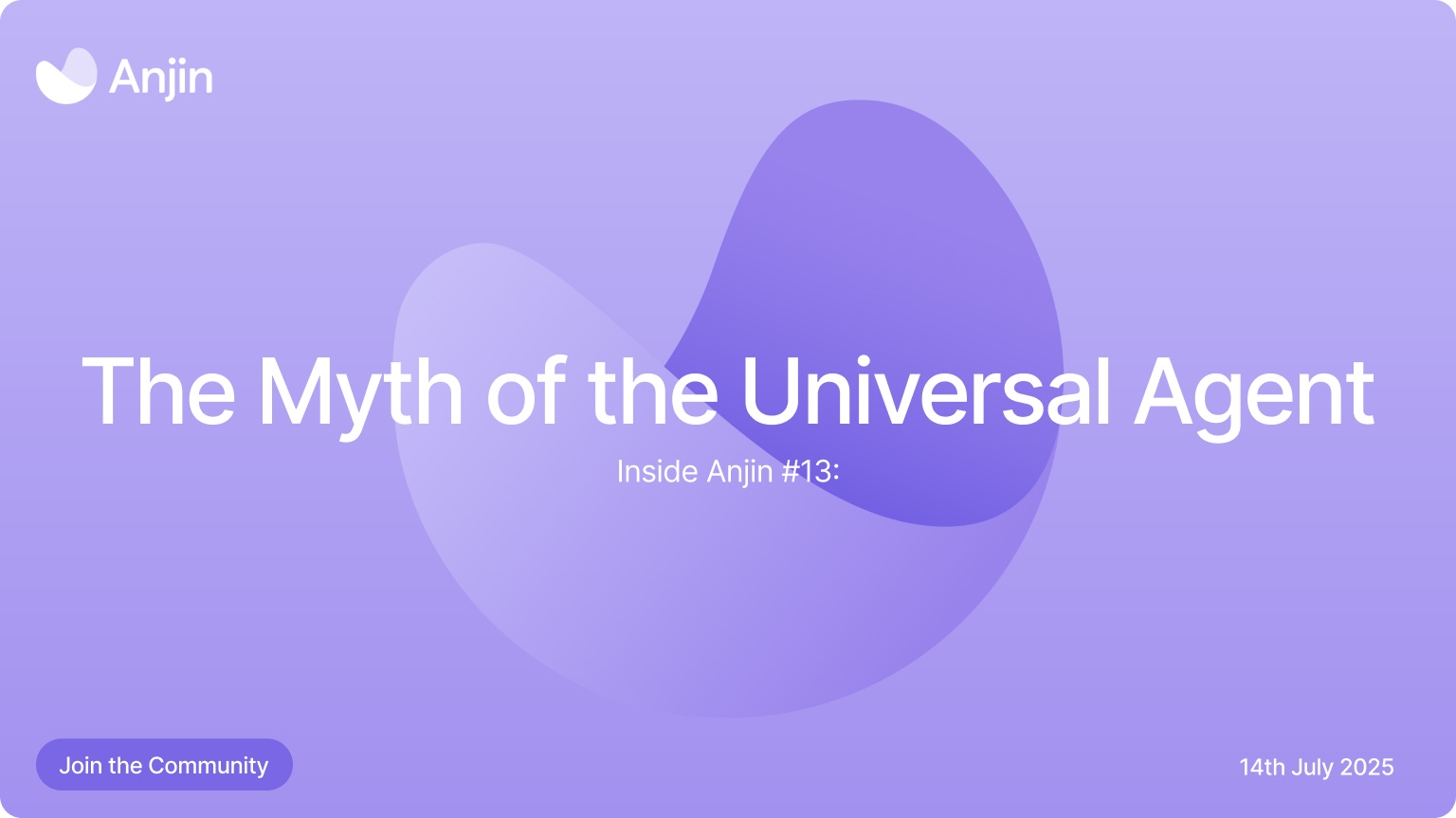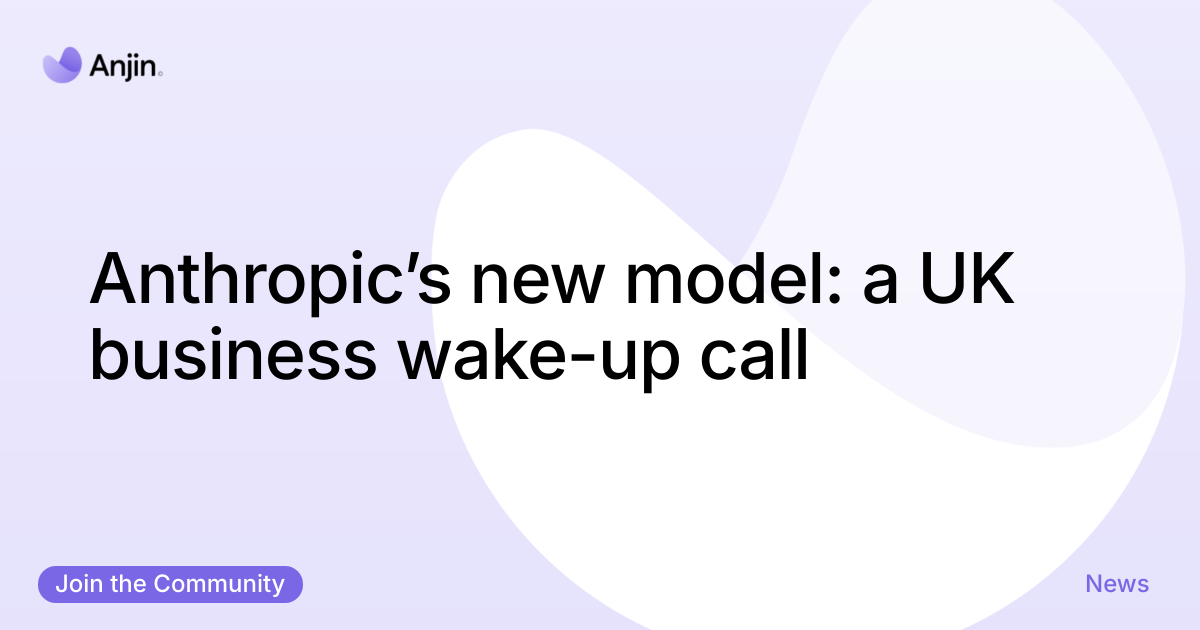The only thing worse than a dumb agent is a smart one that tries to do too much.
There’s a growing trend in the AI world:
Build one giant agent.
Give it memory, tools, APIs, plugins, persistence, personality.
And hope it figures everything out.
We’ve seen the pitch. We’ve seen the wrappers.
And we’ve tried a lot of them.
Here’s our take:
“Do everything” agents rarely do anything well.
Why the Universal Agent Sounds Good (But Isn’t)
The idea is seductive:
One intelligent interface. One conversation history. One assistant to handle your whole workflow.
But in practice, universal agents struggle because:
- They lack context boundaries
- They make vague assumptions
- They generate unpredictable outputs
- They require constant correction
- They drift - in tone, intent, structure, and purpose
What looks like convenience quickly turns into chaos.
Task-Specific Agents Win - Quietly
Our experience building Anjin tells us something very different:
The agents people trust most aren’t generalists.
They’re specialists.
They:
- Know what they’re for
- Have tightly scoped prompts
- Integrate specific tools (not every tool)
- Return structured, repeatable outputs
- Can be tested, versioned, and refined with purpose
A good agent does one thing well - and hands off when it’s time.
That’s not a limitation. That’s design.
Why the Ecosystem > the Monolith
The best agent products won’t be all-knowing generalists.
They’ll be ecosystems of focused, collaborative agents - each with a job, and a reason to exist.
That’s why we’re doubling down on modularity:
- One agent for research
- One for clustering insights
- One for drafting
- One for post-edit QA
- And more, all chained together intentionally, not lumped together by default
This gives us visibility, flexibility, and, most importantly, control.
What Happens When You Pretend an Agent Can Do Everything
We’ve seen the downside of universal-agent thinking:
- No clear output structure
- Hard to debug behaviours
- Impossible to test reliably
- Difficult for users to know when to use it
- Harder to secure, scope, or govern
And ironically, users end up doing more work - because they’re constantly course-correcting.
You don’t need an agent to guess.
You need one that knows what it’s doing.
This Is Why Our Agents Stay Boring (on Purpose)
We don’t build all-knowing copilots.
We build practical, dependable agents that:
- Have a scope
- Live in context
- Integrate with clear logic
- Return results that make sense
- Know when to stop
Because that’s what turns AI into something useful - not just impressive.
Final Thought: Specific Beats Smart
“Smart” is easy to fake.
Specificity is earned.
Anjin is built around the idea that multiple, well-defined agents - chained, scoped, and governed - will always outperform one universal, unpredictable one.
It’s not about less ambition.
It’s about more intent.
And that’s where we’re placing our bets.
Tired of vague promises and AI that tries to do too much?
Join the community or explore how we’re building differently:
- Inside Anjin #12: Augmentation Over Automation
- Inside Anjin #11: From Hype to Habit
- Inside Anjin #06: The Modularity Mindset





